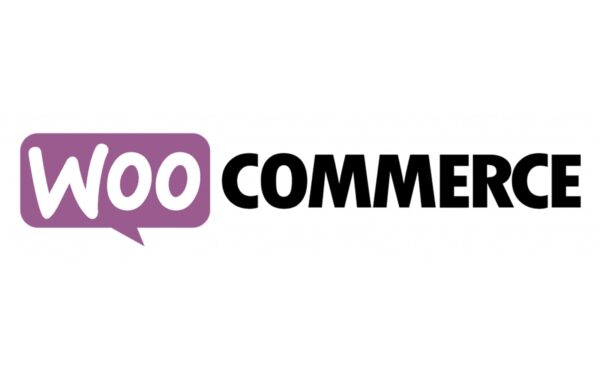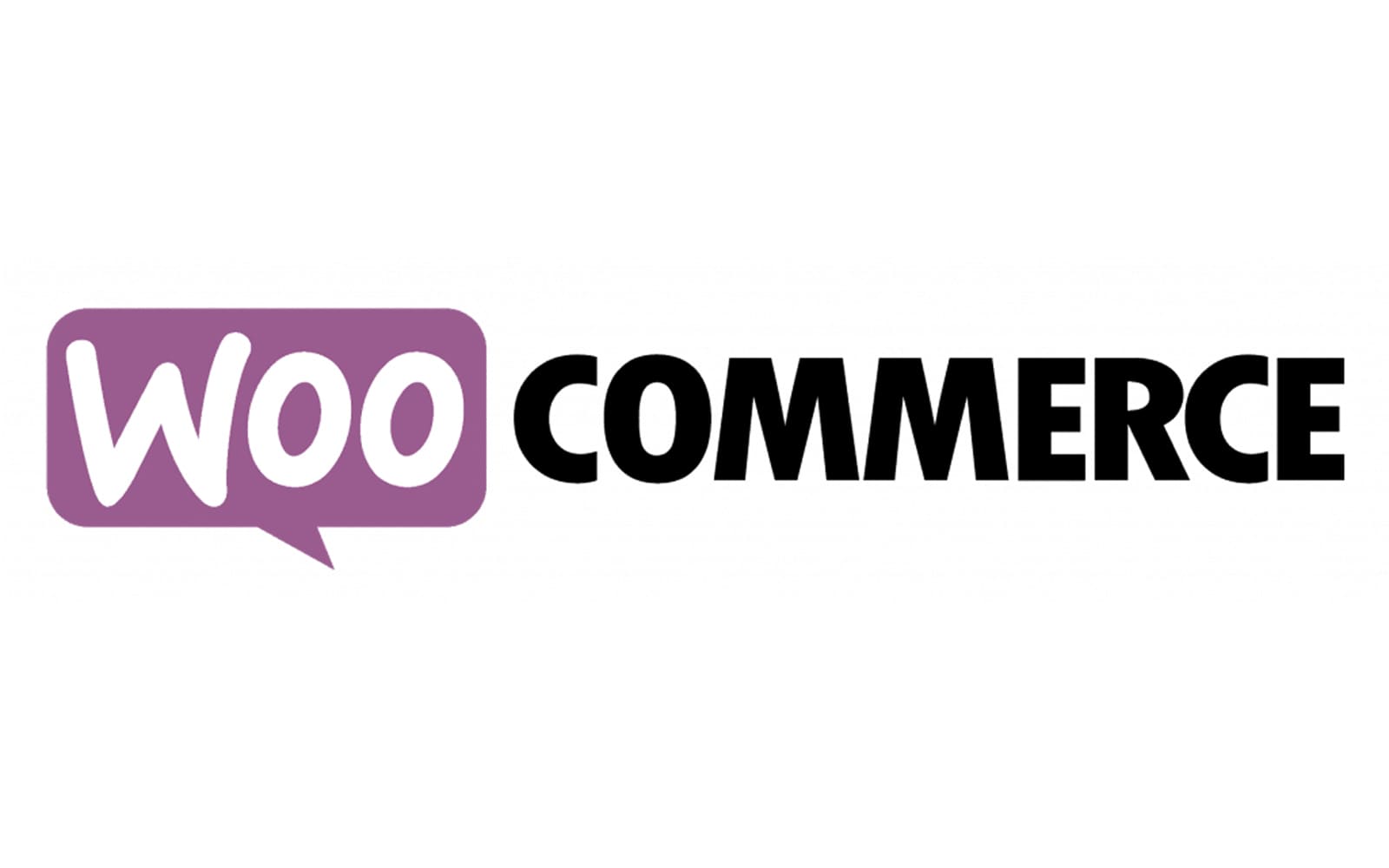Mastering Brand Management: A Guide for Business Success in the Digital Era
In the rapidly changing realm of digital marketing, mastering brand management has emerged as an essential requirement for companies of all sizes. As consumer behaviour changes, technological innovations accelerate, and competition ramps up, the capacity to effectively manage a brand’s image, reputation, and identity has come to the top of the list of strategic concerns. Whether you’re a big organisation or a start-up, we believe that brand management principles are the foundation of long-term success in the digital space.
This comprehensive guide has been carefully constructed with a special emphasis on meeting the demands of small business owners and startup enthusiasts. Our goal is to provide you with the knowledge and skills required to understand and implement effective brand management strategies. Moving beyond theoretical principles, we are committed to providing actionable insights to help you navigate the intricacies of today’s fiercely competitive digital market.
We understand the particular problems that small businesses and startups confront in creating and maintaining a strong brand presence in the digital realm. As a result, this article is meant to provide practical, hands-on assistance tailored to your unique situation. Whether you’re just starting or looking to improve your current digital brand strategy, we’re here to provide you with the tools and expertise you need to succeed in the ever-changing world of digital marketing.
Join us on a transformative journey that goes beyond the essentials, equipping you with a wealth of knowledge and an array of digital marketing tools. When it comes to brand management, survival is only the beginning; we want to prepare you not only to endure but also to thrive in the face of challenges. Let’s dive into the complexities of strategic brand management and uncover the secrets to long-term success!
Why is brand management important in the digital era?
In today’s digital age, effective brand management is more important than ever before. In essence, brand management serves as the foundation for developing a positive brand image, which not only influences client perceptions but also shapes their interactions with the brand. Companies can establish trust and credibility with their target audience online by carefully managing all aspects of the brand experience, from visual identity to messaging consistency across many digital channels.
One of the primary benefits of effective brand management is its capacity to generate consumer loyalty. Businesses can develop a loyal client base by providing consistent brand experiences that resonate with consumers, resulting in not just repeat purchases but also brand advocates who share positive word-of-mouth and drive organic growth. This dedication is especially important in the digital world, where consumers are confronted with an overwhelming number of options and appeals.
Case Study: Take, for example, Apple’s iconic brand management strategy. Throughout its history, Apple has carefully constructed its brand image, leveraging every aspect of its products, marketing, and customer interactions to reinforce its identity as the leader in innovation and design. This integrated approach to brand management extends from the elegant and intuitive design of its products to the fascinating storytelling embedded in its marketing efforts.
Apple’s commitment to providing its customers with distinctive and memorable experiences is visible across its brand strategy. A highly planned marketing campaign supports each product launch, not only highlighting the device’s features and capabilities but also evoking emotions and ambitions from its target audience. By continuously providing goods that exceed expectations and marketing them in a way that resonates with its target audience, Apple has developed a fiercely loyal fanbase that has gone beyond brand loyalty to become a cultural phenomenon.
Apple’s brand management strategy is a great example because it encompasses the full ecosystem of products and services rather than just particular product lines. The seamless integration of devices, software, and services strengthens the brand’s image of reliability, simplicity, and innovation, and we believe that this holistic approach to brand management not only improves the customer experience but also reinforces Apple’s position as a technology market leader.
In essence, Apple’s success is largely due to its consistent dedication to brand management. By constantly delivering excellent goods and experiences, as well as diligently cultivating its brand image across all touchpoints, Apple has created a brand that transcends individual items to become a symbol of innovation, excellence, and ambition. This is a striking example of how successful brand management can be utilised to not just attract and keep customers but also develop market dominance.
Successful brand management goes beyond basic visibility; it is about making real connections with customers and sustaining a strong presence in an ever-changing business landscape. Companies can preserve their brand equity and weather unforeseen challenges by managing their brand reputation proactively and addressing potential risks.
To put it simply, brand management in the digital age is not a luxury but a necessity for businesses looking to thrive in today’s hyper-competitive market. Companies can position themselves for long-term success and growth in the digital age by focusing on brand consistency, building customer loyalty, and adapting to changing consumer preferences.

Why is branding essential for small businesses?
Effective branding is an essential tool for small businesses navigating the competitive market since it serves as a beacon, distinguishing them from competitors and establishing a distinct identity. Branding is more than just having a unique logo or a catchy tagline; it’s about developing a cohesive brand image that interacts with customers on a deeper level. Given this, branding is important for small firms for several compelling reasons:
- Differentiation: In a crowded marketplace, smart branding allows small businesses to stand out. A strong brand identity emphasises what makes a company unique, highlighting its distinguishing features, services, and products in comparison to competitors. This differentiation is extremely effective for attracting customers who are overwhelmed with options and need a reason to choose one brand over another.
- Establishing Credibility and Trust: A well-defined brand fosters trust in customers, and a small business’s branding efforts provide a consistent and professional image, indicating dependability and trustworthiness. This is especially important for startups that want to compete against larger, more established competitors. Indeed, a strong brand can help level the playing field by guaranteeing buyers that they will receive high-quality products or services.
- Creating Emotional Connections: Branding extends beyond transactions and fosters emotional connections with customers. Small businesses can use branding to tell their story, communicate their beliefs, and connect with customers on a more personal level. Small businesses can also build strong client relationships that extend beyond transactions by evoking emotions and communicating their target audience’s desires and interests.
- Supporting Marketing Efforts: Branding serves as the cornerstone for all marketing efforts. A well-defined brand identity ensures consistency across several marketing channels, allowing smaller companies to produce cohesive and compelling marketing campaigns. From social media posts to advertising materials, branding ensures that every touchpoint reflects the company’s message and values, thereby magnifying its marketing efforts.
- Facilitating Growth and Expansion: Strong branding paves the way for growth and expansion. A well-known and renowned brand can lead to new chances, such as expanding into new markets, launching new product lines, or attracting investment and partnerships. Branding provides a foundation for expanding operations while ensuring consistency and coherence across different regions or business ventures.
In essence, branding is crucial for small businesses because it allows them to stand out, establish credibility, form emotional connections with clients, assist marketing efforts, and facilitate growth. Small businesses that invest in branding can improve their competitiveness, build client loyalty, and achieve long-term success in the marketplace. Creating a clear brand identity not only gives small businesses a competitive advantage but also positions them as trustworthy and preferred solutions in the minds of consumers.
Case Study: Let’s look at another effective brand management strategy using Etsy as an example, a platform known for its carefully curated selection of handcrafted and distinctive goods. Etsy’s goal is to promote individual craftsmen and the goods they produce, establishing a community based on authenticity and workmanship. Etsy has built a dedicated client base that is passionate about supporting small businesses and embracing the artistry behind handcrafted products.
The focus on authenticity and craftsmanship appeals to shoppers looking for ethically sourced, personalised items, and because of this, Etsy’s brand identity extends beyond its online presence, representing a lifestyle that values creativity and sustainability. Etsy effectively conveys its beliefs to like-minded individuals via targeted marketing and community participation, maintaining its position as a go-to place for artisanal goods.
The company’s success in an increasingly competitive e-commerce business is due to its constant commitment to its brand strategy. Not only has the platform established a loyal customer base, but it has also attracted experienced artisans from all over the world, expanding its marketplace offerings and solidifying its position as a leader in the handcrafted and artisanal goods business.
In a nutshell, branding is more than simply a marketing tool for small businesses; it is a strategic investment in developing long-term client relationships and maintaining a strong market presence. Small firms may carve out a niche, create a dedicated following, and achieve long-term growth in a competitive business landscape by articulating what sets them apart and effectively expressing their unique value offer.
Brand Management Explained
Brand management is a strategic process focused on shaping and controlling the perception of a brand in the minds of consumers. It involves actively managing all aspects of a brand’s identity, including its name, logo, visual elements, messaging, and overall personality, to create a unique and differentiated position in the marketplace.
The primary goal of brand management is to create strong, positive associations with the brand that resonate with its target audience and drive consumer preference and loyalty. This involves defining the brand’s values, positioning, and voice, and consistently communicating these attributes across all touchpoints and interactions with consumers.
Key components of brand management include:
- Brand Strategy Development: Defining the brand’s goals, vision, values, and market positioning is an important first stage in the brand management process. This fundamental step entails expressing the brand’s overarching goals and aims, as well as establishing core principles that influence decision-making and behaviour. This foundational knowledge serves as a strategic framework for all subsequent brand management operations, directing decisions and actions that are consistent with the brand’s overall aims and values.
- Brand Identity Design: It is crucial to have a strong visual identity for a brand because it serves as the primary means of communication with consumers and helps differentiate the brand from competitors. This component includes the visual aspects that represent the brand, such as the logo, colour palette, typography, and images. Additionally, it’s worth noting that these elements should be designed to communicate the brand’s personality and evoke the desired emotions and perceptions from customers and target audiences.
- Brand Communication: A brand’s message is crucial for conveying its identity, value proposition, and positioning to customers. It distinguishes the brand, fosters emotional connections, engages customers, and promotes loyalty. Effective brand communication involves crafting language and content that communicate the brand’s message and unique selling points to the intended audience through various channels like advertising, public relations, social media, and content marketing.
- Brand Experience Management: The purpose of brand experience management is to guarantee that every engagement with the brand produces a uniform and favourable experience for consumers. This involves a wide range of touchpoints, including product design, packaging, online and physical encounters, customer service, and post-purchase support. Each of these factors contributes to defining consumers’ views of the brand and plays an essential part in encouraging loyalty and satisfaction. By precisely managing every part of the brand experience, businesses can develop meaningful connections with consumers and cultivate long-lasting relationships built on trust and satisfaction.
- Brand Monitoring and Analysis: Brand monitoring includes closely examining and analysing consumer perceptions, attitudes, and behaviours towards the brand. This comprehensive method involves monitoring various channels, including social media platforms, internet reviews, client feedback, and market research. This proactive approach to brand management essentially keeps businesses informed concerning how the target audience perceives and values the brand. Businesses need to adapt to shifting client preferences while also continuously increasing their brand’s reputation and resonance in the marketplace.
Brand management is an ongoing process that requires careful planning, execution, and monitoring to build and maintain a strong and reputable brand that resonates with consumers and drives business success. Ready to elevate your brand’s success? Start your journey with our strategic brand management today!
DIGITAL Brand Management Explained
Digital brand management is the strategic process of developing and sustaining a brand’s identity and reputation in the digital environment. It entails using a variety of digital platforms, channels, and technologies to successfully communicate with and engage the brand’s intended audience. At its core, digital brand management includes several components:
- Online Presence Optimisation: This entails ensuring that the brand has a strong and consistent presence across several digital channels, such as its website, social media platforms, search engines, and online marketplaces. This includes optimising the brand’s website for search engines (SEO), keeping active and engaging social media profiles, and managing online listings and directories.
- Brand Consistency: Consistency is key in digital brand management for ensuring brand integrity and coherence across all digital touchpoints. This includes maintaining consistent messaging, visual identity, and tone of voice throughout the brand’s website, social media posts, Google or Meta ads, and other online material.
- Content Creation and Distribution: Digital brand management involves providing high-quality and engaging content that is relevant to the brand’s target audience and consistent with its brand identity and values. This material can take several forms, such as blog articles, videos, infographics, podcasts, and social media posts. Once generated, the material is deliberately delivered through relevant digital channels to reach and engage the intended audience.
- Community Engagement: Building and cultivating an online community around the brand is critical for digital brand management. This entails actively engaging with followers, responding to comments and messages, taking part in important online discussions, and developing meaningful relationships with consumers and fans.
- Reputation Management: Tracking and monitoring the brand’s online reputation is an important component of digital brand management. This includes monitoring brand mentions on social media, review sites, and online forums, responding quickly to negative criticism or complaints, and actively managing the company’s online image and reputation.
- Data Analysis and Insights: Data analysis and insights are used in digital brand management to assess the efficiency of branding activities, understand audience behaviour and preferences, and identify areas for development. This includes measuring key performance indicators (KPIs), analysing website traffic and engagement metrics, and utilising technologies such as social media analytics and sentiment analysis to acquire insights into audience sentiment and perception.
In essence, digital brand management is a dynamic and comprehensive strategy that necessitates a methodical approach to efficiently leveraging digital channels and technology to establish, maintain, and improve a brand’s presence and reputation in the digital landscape.

THE BENEFITS OF BRAND MANAGEMENT
Effective brand management is the foundation for building a strong and respected brand that deeply connects with customers, cultivates steadfast loyalty, and, eventually, accelerates business success to new heights. It involves taking a systematic approach to developing all parts of the brand’s identity, from core principles and messaging to visual aspects and customer interactions.
Businesses that effectively manage these factors can establish a brand that not only stands out in the marketplace but also resonates with consumers on a personal level, generating strong emotional connections and long-term partnerships. This results in improved client loyalty, support, and confidence, as well as a competitive advantage in an ever-changing marketplace. Finally, successful brand management provides the framework for long-term growth, profitability, and market success.
To gain a better understanding, let’s take a closer look at the benefits of brand management:
Enhancing Brand Equity:
Strategically creating a positive image that resonates with your target audience can result in a high return on investment (ROI) in brand equity. Consider Starbucks as an example – by emphasising sustainability and ethical sourcing, the company demonstrates how consistent brand messaging builds brand equity and attracts customers who share its beliefs.Starbucks has incorporated sustainability into its operations, from sustainably sourced coffee beans to encouraging environmental projects. This passion is reflected in Starbucks’ branding, which regularly emphasises its commitment to ethical and environmentally friendly practices.
Starbucks differentiates itself from its competitors by aligning its brand language with customer values such as sustainability and social responsibility. Starbucks is therefore an excellent example of brand equity as a benefit of brand management since it appeals to environmentally conscious customers not only for its high-quality coffee but also for its commitment to making a positive impact on the environment.
Consistency Across Marketing Channels:
Implementing and adhering to brand guidelines across all communication channels is essential for projecting a consistent and unified brand image. McDonald’s is a classic illustration of this, with consistency being the key to its global success. Throughout its enormous network of restaurants and marketing outlets around the world, the corporation has maintained a similar brand identity by adhering to its brand guidelines in all elements of its communication, including advertising campaigns, packaging, signage, and digital presence. When customers visit a McDonald’s restaurant, no matter the city, they are guaranteed the same familiar branding and experience.
This dedication to consistency has allowed McDonald’s to establish itself as one of the world’s most recognisable and adored fast food chains, building consumer trust and familiarity and making McDonald’s the preferred choice for millions of customers worldwide. Businesses can emulate McDonald’s brand consistency by creating a strong and distinctive brand identity that resonates with customers and creates long-term market success. Consistent branding promotes brand identification, increases consumer trust and brand loyalty, and assures a consistent brand experience across all touchpoints.
Building Customer Loyalty:
Consistently providing positive and memorable brand experiences is vital for building trust and connections with your intended audience. When customers have repeatedly positive interactions with a business, they gain trust in the brand’s consistency and credibility, leaving long-lasting impressions that resonate emotionally. Brands can establish deep emotional connections with customers by exceeding their expectations and inspiring positive emotions such as satisfaction and loyalty. This leads to increased trust and advocacy, and as a result, investing in excellent brand experiences is crucial for long-term brand success.Amazon, a global powerhouse, exhibits this value through its constant dedication to customer satisfaction.
Amazon has acquired outstanding customer loyalty by focusing on the user experience above all else, making its brand synonymous with convenience, dependability, and exceptional service. Amazon’s consumer-centric approach influences every part of the company, from its user-friendly website and lightning-fast shipping to its swift customer support. As a result, customers not only return to Amazon for their shopping needs, but they also actively promote the company by spreading positive word of mouth and strengthening Amazon’s reputation as a customer satisfaction leader.
Effective Risk Management:
In times of crisis or negative events, effective brand management is a valuable asset for businesses, providing them with the tools and skills needed to mitigate and recover from difficult situations. Companies that manage their brand proactively can navigate unexpected challenges, keep control over their narrative, and respond quickly to public relations issues. This strategic approach involves thorough preparation for identifying potential risks and vulnerabilities, allowing companies to manage unexpected challenges quickly and minimise the negative impact on their reputation.
For example, during the COVID-19 pandemic, several companies encountered extraordinary obstacles, such as supply chain interruptions, shifts in consumer behaviour, and economic uncertainty. Businesses with strong brand management strategies were better positioned to meet these issues, communicate effectively with their stakeholders, and maintain their brand reputation. Airbnb, for example, responded quickly to cancellations, reassured guests and hosts, and showed its dedication to safety and cleanliness. In essence, by proactively managing its brand and speaking freely with its community, the business effectively navigated the issue while maintaining its reputation. This demonstrates the necessity of professional brand management during times of uncertainty, allowing businesses to preserve stakeholder trust and confidence while limiting potential reputational concerns.
Employee Engagement and Brand Alignment:
Brand management goes beyond external perceptions to internal dynamics, engaging employees in the brand’s values, vision, and objectives. Employees achieve greater awareness of the brand’s identity through excellent brand communication, which fosters a sense of alignment with its core principles. This involvement helps to build a motivated and unified workforce, ensuring that employees become brand ambassadors who represent and champion the brand both internally and publicly.
Take the tech giant Google, which is well-known for its dynamic and creative corporate culture that emphasises innovation, teamwork, and excellence. Google continuously reinforces its brand values and goals through numerous internal communication channels, including team meetings, company-wide communications, and internal social platforms. Employees are encouraged to offer ideas, cooperate across teams, and strive for excellence in their jobs, all while representing Google’s corporate identity. This alignment of employees with the brand’s values fosters a deep sense of community and purpose within the organisation, resulting in a motivated workforce committed to protecting and promoting the Google brand internally and externally.
Facilitating Market Expansion Through Trust:
A well-managed brand with high consumer loyalty and constant branding initiatives creates the groundwork for market expansion. Loyal customers, who have created trust in the brand, are frequently more open to new product and service options. In this setting, brand management not only preserves existing customer connections but also enables strategic expansion by leveraging established trust to explore emerging markets and opportunities. Remember, this trust is also vital for developing long-term relationships and creating brand champions who are not only loyal but also willing to recommend the company to others.
Take the global eating establishment Chick-fil-A for example. Chick-fil-A has cultivated a loyal fanbase via its consistent commitment to high-quality ingredients, great customer service, and active community involvement. Because of this, Chick-fil-A has been able to successfully introduce new menu items and grow into new markets because of its devoted consumer base, which genuinely loves the brand’s principles and products. Chick-fil-A has not only retained its existing customer base but also attracted new customers and capitalised on development prospects in multiple countries, thanks to efficient brand reputation management and constant delivery of brand promises. As a result, the restaurant has been able to continually expand its presence and market share, illustrating how effective brand management can generate both customer loyalty and market growth.

BRAND RECOGNITION, LOYALTY AND REPUTATION
Several essential elements play an important role in the complex tapestry of effective brand management. At the forefront is brand recognition, which guarantees that consumers can easily identify a company by using visual clues such as logos, colours, and packaging. This recognition is vital for raising awareness and influencing purchasing decisions.
Brand loyalty, which is built on consistent pleasant experiences, complements brand recognition. When customers continually have positive interactions with a company, they gain trust and commitment, which leads to brand advocacy and repeat purchases. This dedication stems from a brand’s ability to continuously deliver on its promises while meeting or exceeding client expectations.
Brand management is crucial to these methods since it unifies brand elements for coherence and resonance; it entails managing all aspects of a company’s identity, from its visual appearance and marketing to customer interactions and reputation management. By maintaining consistency and coherence across these areas, brand management guarantees that the brand remains relevant and impactful in consumers’ minds.
Brand positioning is another critical component of an effective digital brand strategy, as it systematically carves out a distinct market niche for the company. A brand can attract and keep customers who are interested in its offerings by emphasising its unique value proposition and distinguishing itself from its competition. Concurrently, brand awareness assesses the extent to which a brand is recognised by its intended audience. High brand recognition is essential for recruiting new clients and retaining existing ones since it helps to establish trust and credibility.
Finally, brand reputation refers to how customers perceive the brand as a whole, based on its activities, values, and product quality. A great brand reputation is critical for establishing customer trust and loyalty since customers are more likely to conduct business with firms that they perceive positively.
These factors work together to form the foundation of a strong and long-lasting brand presence in today’s competitive business environment. By carefully managing brand recognition, loyalty, positioning, awareness, and reputation, brands may establish a strong emotional connection with their target audience and achieve long-term success.
PARTNER WITH ELECTRIC EGG
Discover the unparalleled excellence of Electric Egg’s brand management services, where personal relationships with our clients are at the heart of everything we do. As a team of seasoned experts, we understand the intricacies of brand management and are dedicated to delivering results that exceed expectations. Our collaborative approach ensures that we work closely with you to understand your unique brand identity, objectives, and challenges. By leveraging our expertise and industry insights, we develop tailored strategies that resonate with your target audience and elevate your brand’s presence.
At Electric Egg, we pride ourselves on offering comprehensive solutions to meet all your brand management needs. Whether you’re looking to refresh your brand identity, launch a new product, or expand your market reach, we have the knowledge and experience to help you succeed. From crafting compelling brand narratives to designing eye-catching visuals and implementing effective marketing campaigns across various channels, we offer a full suite of services tailored to your specific goals.
Our commitment to personal relationships means that you’ll have direct access to a dedicated team of professionals who are passionate about your success, all under one roof. We take the time to listen to your needs, address any concerns, and provide ongoing support and guidance every step of the way. With Electric Egg by your side, you can trust that your brand is in good hands.
Partner with us and witness the transformation of your brand into a powerful force in your industry. Contact us today to schedule a consultation and discover how Electric Egg can help you achieve your brand management goals.
our final thoughts
Brand management is more than just a checkbox; it is the compass that guides small businesses and startups through the complex digital terrain. We hope this comprehensive guide enables you to take control of your brand’s narrative, develop long-term relationships with your target audience, and confidently traverse the digital terrain.
Are you ready to maximise the possibilities of your brand’s online presence? Elevate your digital brand strategy with Electric Egg’s tailored solutions, precisely designed to connect with your target audience and promote meaningful connections. Whether you are looking to increase brand recognition, build consumer loyalty, or manage the complexity of the digital market, we have you covered.
Contact us today for a personalised consultation, and together, we can pave the way for your brand’s success in the competitive digital arena.


















